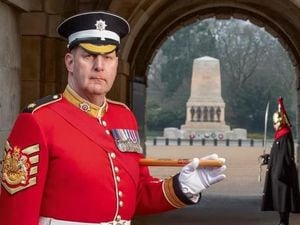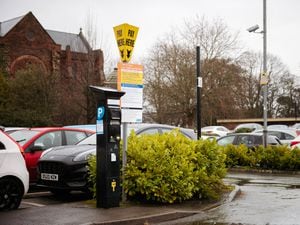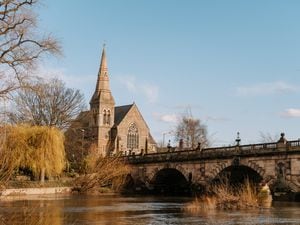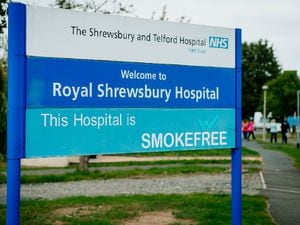Hurricane Irma: ‘I’ll never complain about British weather again’
Salopian Chris Smith feared the worst as Hurricane Irma hit his Florida home. He recounts a brush with Mother Nature that was too close for comfort.
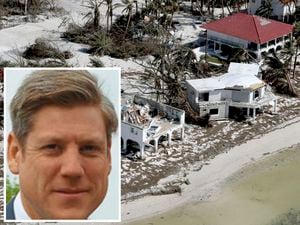
I awoke on Sunday morning to the sound of gusts surging through palm trees, horizontal rain clattering against windows and rumbles of thunder looming in the distance.
After three agonising days studying wind speeds, slight course changes and watching horrifying TV reports of deadly destruction in the Caribbean, Hurricane Irma was almost upon south Florida. Upon my family.
Preparing for a hurricane is a surreal experience. You start ranking your belongings on an emotional hierarchy. Everything you’d be heartbroken to lose is shoved in a suitcase or placed at the highest points in the home.
At the same time, you detach yourself from belongings and accept nothing but safety matters. You realise an Ikea dinner table is replaceable and laugh at yourself for caring about “just stuff”.
As you scour barren supermarket shelves for water and emergency supplies, you grasp the insignificance of the weekend’s footy fixtures and yearn for when you’ll care way too much about them again.
In the anxious hours during Irma’s approach, we did what we could do secure our ground floor apartment. We shifted the freezer and mattresses in front of windows, and taped rolled-up towels under doors. We ‘borrowed’ sand from the beach under cloak of darkness to fashion makeshift sandbags, knowing deep down all of it would be utterly futile if Mother Nature decided to flex her muscles.
With each news report appearing, you debate an evacuation and worry you’re being asked to make a life or death decision in a matter of hours.
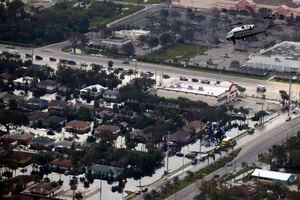
As a non-native Floridian, you’re often regaled with stories of Andrew and Wilma, infamous names that no longer require the prefix ‘Hurricane’ in these parts. I knew when I moved here in 2010 there was a chance I’d have to face one of these. This was to be the once in a generation storm, our story to recite, they said.
However, this sheer size and might of Irma (think of it as a really, really angry France barrelling towards you) had the potential to make these storms look like a drizzly afternoon on the Stiperstones.
I had no frame of reference, which was perhaps the scariest thing. I struggled to imagine what the worst-case scenario looked like, so my mind turned to Hollywood imagery. It’s also difficult to remain calm when your police offer brother-in-law calls and says “you need to get the f*** out right now.”
Against that advice, my wife and I decided that the offer of shelter, hurricane experience (and impact windows) at her parents’ house was the best option for us.
With chronic gas shortages, an uncertain storm path and gridlocked traffic on the only route out, we decided this was the best course of action. We’re at the southern tip of a narrow state surrounded by water to the south, east and west. It made me realise, for the first time, how truly isolated we were.
So, we locked up our apartment on Friday not knowing if it would be in a habitable state when we returned. That was a weird feeling, I can tell you.
I hadn’t known I’d missed my calling as an actor until my efforts to reassure my panic-stricken mum we would be absolutely fine. I know it was awful for her last week when I left Shrewsbury to travel directly into the path of a looming hurricane.
On Sunday morning, the decision not to evacuate hit home. We were in it now. There would be no escape and I was left wondering whether I should have joined the millions in running from the storm.
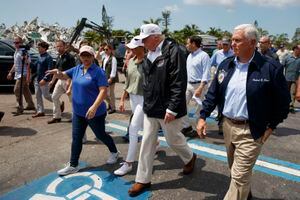
Although the forecast had improved for the East Coast of the state, this was little comfort when video of the streets of Key West (the southernmost point of the continental U.S.) overwhelmed by a deadly storm surge began surfacing on Sunday morning.
Throughout the morning, the winds got stronger. Every crack or bump seemed like a potential breach of the roof, as deep-rooted trees were expunged from the ground, live power lines came tumbling down with a bang and street signs littered the corners. Social media showed images of submerged Miami streets, of broken construction cranes swinging in the wind.
Countless times we said “that’s gotta be the worst of it,” to each other, but the winds only got stronger. I knew then I’d never be caught complaining about British weather ever again.
Eventually, around 6pm, after around 10 hours, the worst was over for us. However, for our friends and family in Tampa and Orlando it was only just beginning, as Irma dallied north at a mere 9mph.
On reflection, we were very fortunate. A brush with northern Cuba had robbed Irma of some strength, while the late swing to the west coast of Florida had spared us of the forecast “catastrophic” damage.
This could have been infinitely worse. Many homes’ front lawns are now piled 5ft high with tree limbs, but this was best-case scenario.
During the clean up we all knew a massive bullet had been dodged. And only in Florida can you be in a Category 4 hurricane one day and get a nasty sunburn before lunch the next.
The resulting disruption caused by power (how did people ever live here before air conditioning?) and communications outages have been trying, but they are nothing to what our neighbours in the Florida Keys are enduring.
Many residents who evacuated are unable to return to their homes, the only road in and out of the unspeakably beautiful chain of islands still deemed unsafe. Many are waiting to find out what, if anything, remains of their homes.
Among those who refused to leave, scores are currently unaccounted for. The best hope is lack of contact can be attributed to lack of electricity, phone and internet service. The alternative doesn’t bear thinking about.
Right now I feel a mixture of relief, gratitude, humility and sadness. For us, relative normality has already been resumed. For those poor folks in the Keys it’ll be years.

